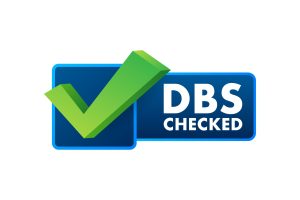
A Standard Disclosure and Barring Service (DBS) check is a crucial component of the recruitment process for various roles across the UK. It offers employers valuable insight into a candidate’s criminal history, helping to ensure that individuals are suitable for positions of responsibility and trust. This article will explain what a Standard DBS check is, where and how to apply for it, what supporting documents are required, and why it is necessary.
What is a Standard DBS Check?
A Standard DBS check provides information on any spent or unspent convictions, cautions, reprimands, and final warnings from the Police National Computer (PNC). This type of check is essential for roles that involve a degree of responsibility or trust, though not necessarily direct contact with vulnerable groups, such as children or vulnerable adults.
Unlike the Basic DBS check, which only reveals unspent convictions, a Standard DBS check provides a more detailed view of an individual’s criminal history. It is commonly required in sectors such as healthcare, law, finance, and roles in which individuals may have access to sensitive information or assets.
Where to Apply for a Standard DBS Check
Individuals cannot apply for a Standard DBS check themselves. It must be requested through an employer or an organization, typically after a job offer has been made or during the onboarding process. The application is usually managed by the employer, who submits the relevant forms to the DBS, either online or via an umbrella body — a third-party organization that acts on behalf of employers to handle DBS checks.
How to Apply for a Standard DBS Check
Applying for a Standard DBS check is a straightforward process, but it must be done by an employer or authorized organization. Below are the steps involved:
Employer Initiation: The employer initiates the process by requesting the check for the potential employee. The organization will either manage this directly or use an umbrella body.
Filling Out the Application: The applicant will be asked to provide personal details such as full name, date of birth, and current and previous addresses. The employer will assist in filling out the DBS application form.
Document Verification: To confirm the identity of the applicant, certain supporting documents must be submitted. These documents are verified either by the employer or the umbrella body handling the process.
DBS Processing: Once the application is complete, it is sent to the DBS, which processes the request by checking police records for any relevant criminal information.
Results: After the check is processed, a certificate is issued. The applicant and the employer receive the results, which will either clear the applicant or indicate any recorded convictions or cautions.
Supporting Documents Required for a Standard DBS Check
Supporting documents are essential for verifying an applicant’s identity during the DBS application process. These documents are divided into several categories, and the applicant needs to provide a combination of documents to prove their identity, address, and right to work in the UK. Typically, the documents required fall into three categories:
Primary ID Documents: A valid passport, UK driving license (photocard), or a national identity card.
Proof of Address: A recent utility bill, bank statement, or a council tax statement. These documents must be recent (usually dated within the last three months) and show the current address.
Additional Supporting Documents: If necessary, documents like a birth certificate or marriage certificate may be used if an applicant is unable to provide sufficient proof of identity from the primary categories.
The employer or umbrella body will review these documents to ensure they meet the necessary criteria before submitting the application to the DBS.
Why Do We Need Standard DBS Checks?
A Standard DBS check is vital for ensuring that individuals with access to sensitive information or roles of responsibility are thoroughly vetted. Here are some reasons why a Standard DBS check is necessary:
Workplace Safety: Ensuring that individuals do not have relevant criminal records that would disqualify them from positions of trust is key to maintaining a safe work environment. Standard DBS checks provide insight into whether a candidate has a criminal past that could impact their suitability for a role.
Public Trust and Reputation: Employers, particularly in sectors such as healthcare, law, and finance, must uphold public trust. A thorough vetting process that includes a Standard DBS check helps protect an organization’s reputation by ensuring they are hiring individuals who are legally and ethically suitable for their positions.
Legal and Regulatory Compliance: In many sectors, conducting a Standard DBS check is a legal requirement. Organizations in regulated industries, such as finance or healthcare, must comply with statutory obligations to ensure employees meet certain standards. Failing to perform these checks can lead to legal consequences, including fines and penalties.
Protection Against Liability: Hiring individuals without proper background checks could expose employers to potential legal liabilities if those employees later engage in criminal or harmful behavior while in their roles. Conducting a Standard DBS check mitigates this risk by screening candidates thoroughly before they start work.
A Standard DBS check is an essential tool for employers who need to ensure that candidates for roles of responsibility have been properly vetted. Although individuals cannot apply for a Standard DBS check themselves, employers or organizations can manage the process by submitting the application through the DBS or an umbrella body. The process requires the submission of specific supporting documents to confirm identity, and once complete, it helps ensure that individuals are safe and suitable for the positions they are applying for. By conducting a Standard DBS check, employers protect their organizations, maintain legal compliance, and safeguard the public, ensuring a safer working environment for everyone.